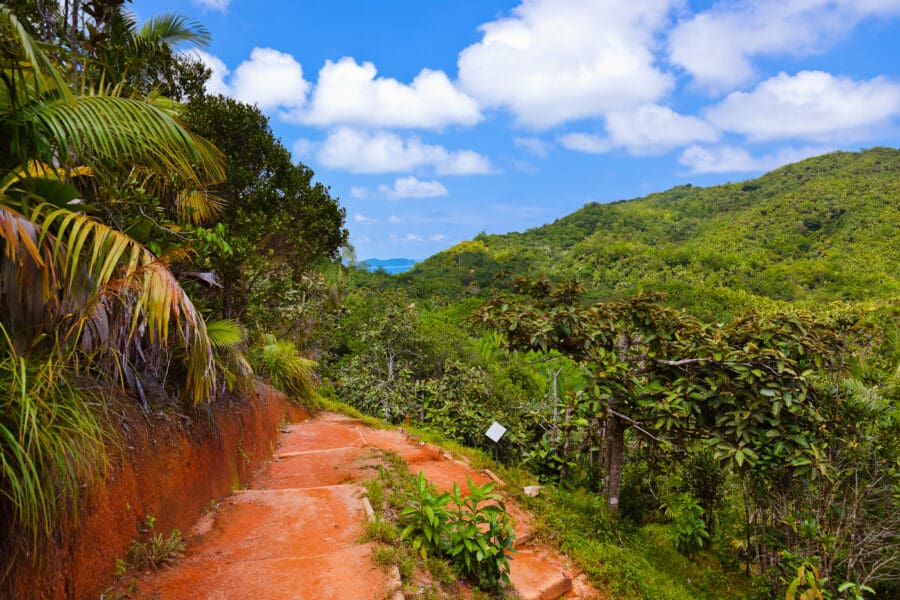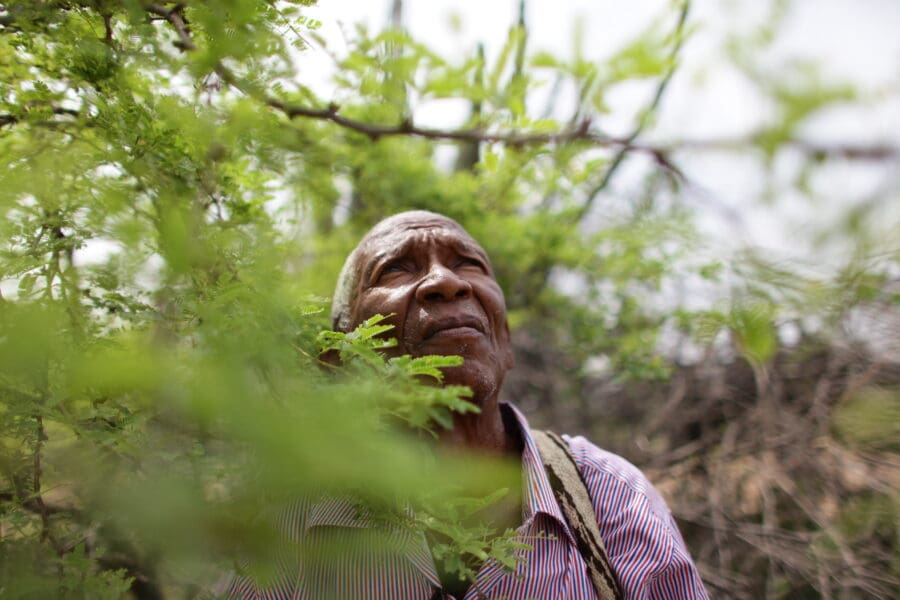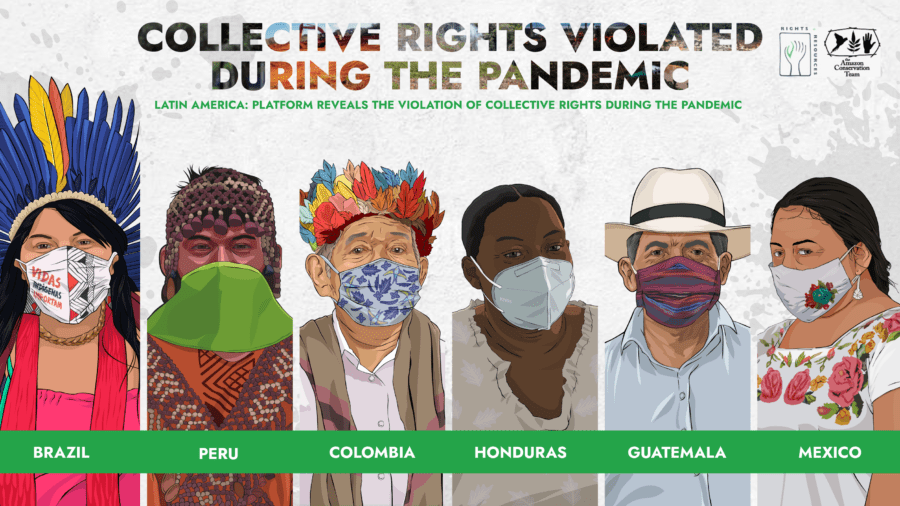BOGOTÁ (September 29, 2022) — Rights and Resources Initiative (RRI) present the findings of a new study that identifies opportunities towards the integration of a rights-based approach to conversation within the legal frameworks of Colombia and Peru. The legal study identifies recognizing the tenure rights of Indigenous Peoples and Afro-descendant Peoples in the two countries as an effective strategy towards the protection of biodiversity in the Amazon.
The new study, The Status and Future of Rights-Based Conservation in the Amazon of Colombia and Peru, is a collaborative effort on behalf of the RRI Coalition. At 11:00 a.m. EST in the Pablo VI Auditorium of the Universidad Javeriana in Bogotá, many regional and legal experts were present: Eugenia Ponce de León Chaux, Johana Herrera and the Amazon Conservation Team (ACT); Carolina Gil, Andrea Montoya, Pablo Velásquez, Juan Varela and Diego Hoyos; and from the RRI Latin America Program, Omaira Bolaños and Alejandra Zamora.
This analysis highlights the urgent need to work on a rights-based approach to conservation in the Colombian and Peruvian Amazon considering the multiple collective rights of Indigenous Peoples and Afro-descendant Peoples. The study proposes a roadmap to transform, strengthen and expand existing conservation legal frameworks.
The study proposes that in order to achieve conservation in the Amazon, a rights-based approach to conservation must address the recognition of the territorial rights of ethnic peoples, as well as those related to the use and management of natural resources, participation, and self-governance.
Although Colombia has made progress in vindicating the constitutional rights recognized for Indigenous and Afro-descendant Peoples, specialists point out the importance of overcoming the conservation approach that assumes that in order to protect biodiversity, it is necessary to guarantee the absence of humans in the territories needing conservation. To truly arrive at effective conservation strategies, decisions regarding conservation areas in the Amazon require political efforts that recognize, respect, and defend the traditions, subsistence systems, and territorial rights of the diversity of Indigenous and Afro-descendant Peoples and communities that live there.
The results of this report are based on a legal and cartographic analysis, as well as dialogues and interviews with experts. The legal frameworks for conservation and collective tenure over lands and territories of Indigenous and Afro-descendant Peoples were reviewed (including the constitution, laws, decrees, and court rulings). The comparative cartographic analysis captures the progression of the implementation of both conservation and collective tenure regimes and the recognition of the territorial rights of Indigenous and Afro-descendant Peoples.
Similarly, interviews and focus groups were conducted with 26 representatives of government, civil society, and relevant Indigenous and Afro-descendant communities in Colombia and Peru to gather their perspectives and priorities for implementing a rights-based approach to conservation. The study was carried out in collaboration with the Colombian and Peruvian government, civil society, and Indigenous and Afro-descendant Peoples.
Recommendations
In the study, RRI calls on different actors in government, civil society, academia and community organizations to carry forward a process of articulation and collective work based on the different opportunities identified to address a rights-based approach to conservation in the Colombian and Peruvian Amazon.
Some of the recommendations that the study proposes to advance towards the practice of a rights-based conservation is to conceive the integral character of the concept of territory for ethnic groups with the objective of settling the differences that exist between the state vision and that of the ethnic peoples. It is common for the general public to understand the various ecosystems that make up the Amazon—forests, hydro-biological resources, flora, and fauna—as separate entities. However, from the perspective of the region’s Indigenous and Afro-descendant Peoples, the Amazon ecosystem is conceived as a whole which is indivisible from their own selves, part of their culture and worldview.
The Call to Action from the ethnic communities is clear, as indicated in the interviews:
“The rights approach in conservation must consider the heterogeneity of the Amazonian indigenous peoples, some more fragile than others, with more pressure, with less population and with greater threats to their integrity and survival.”
“The collective titling of the Afro-descendant communities [must be seen] as an opportunity to generate connectivity zones and greater protection to the Amazon.”
Life is at stake. The Amazon, with its ancestral wealth and natural power, needs the impulse of transformational processes that have a multiplier effect to achieve a rights-based approach to conservation that will integrate and respects ethnic peoples and their territorial rights.








